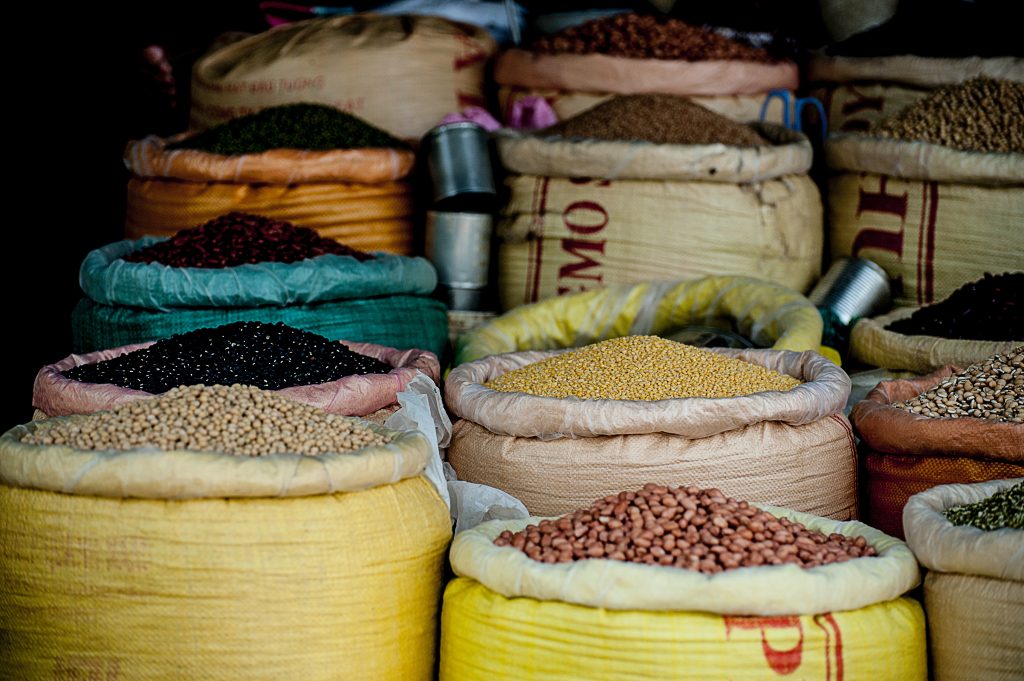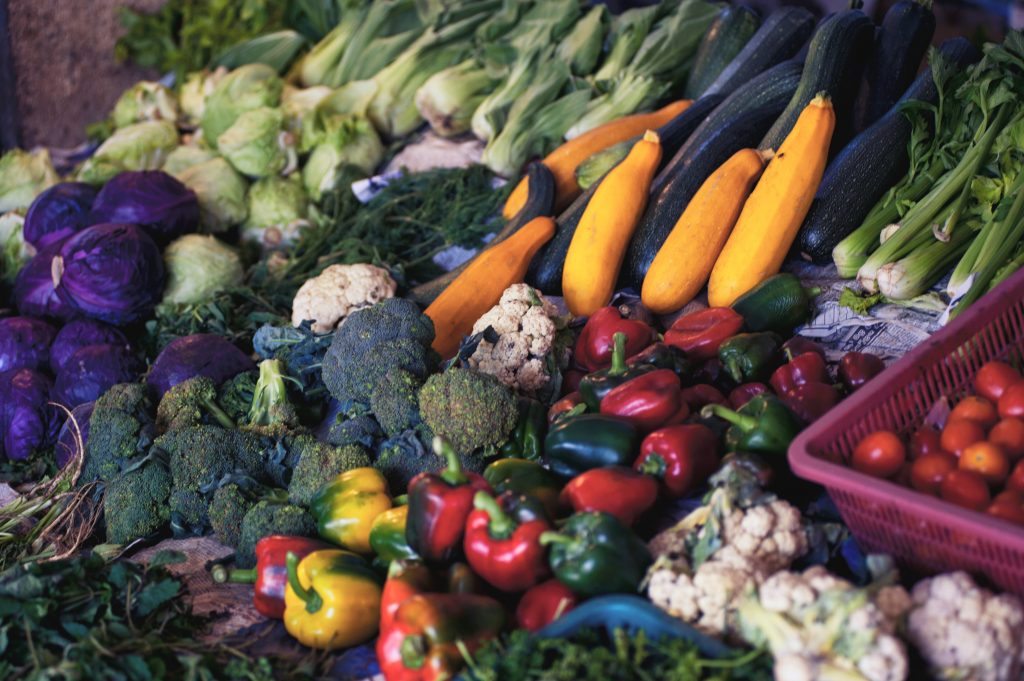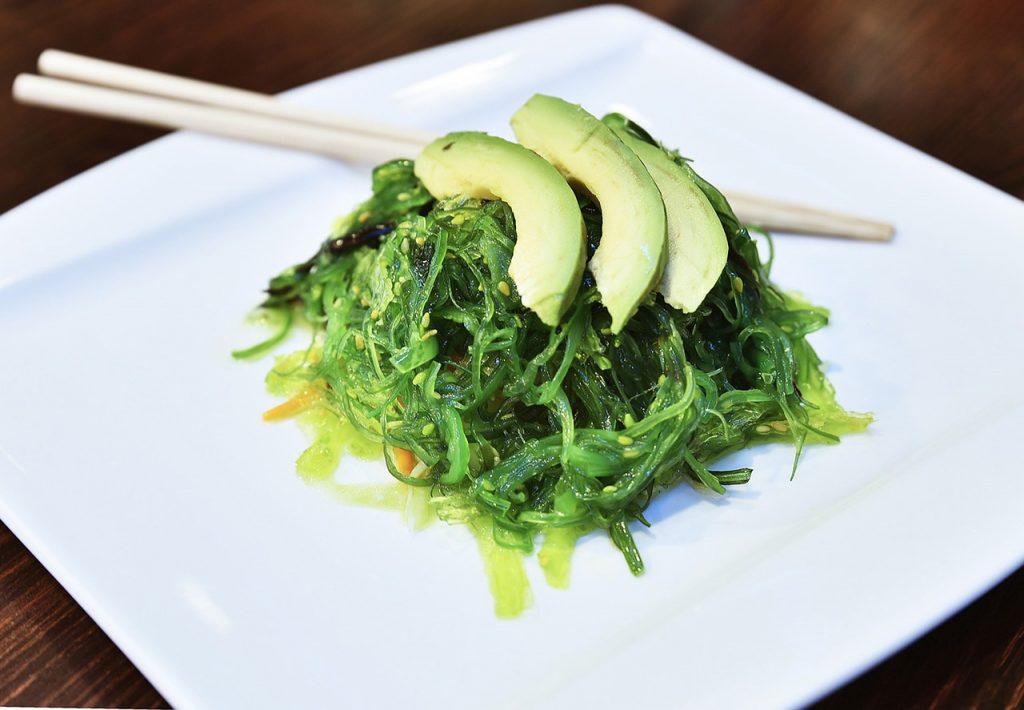My pandemic grocery list

Find out what to include in your grocery list to boost your immune system in this pandemic
Lock-down has started since a week here in the UK, panic buyers are still everywhere – are their fridges and freezers not oozing with food yet? Supermarkets shelves are half empty, all the flours have gone, but I have finally found some toilet paper:)
There is a lot of fear spreading in the news, with no constructive suggestions on what we should do.
We have being told to stay at home and self-isolate, shielding from the world, with our “essential” alcohol to keep us happy and oblivious, waiting to see if the monster goes away. It seems like we are under attack, and our only saviour could be a vaccine.
In all of this, there is no mention whatsoever about the most important thing we could actually do in case of a pandemic, which is…
Build up our immune system, so that it can deal with any threat coming from the external environment.
You see, we should focus on the “host”, not on the menace. And it’s a fact that for people who have a stronger immune system this virus will be like a nasty flu, whereas people with underlying conditions and weaker immune defenses will experience the most problems.
So how do we make sure our immune system is in good shape in this pandemic?
Sunlight, exercise, good sleep, stress reduction, and…. the right food!
We might have no control on what’s going on around us, but we certainly do in all the above.
There are few clients who are emailing asking what they should eat and if there is anything they should get in particular in these mad times.
While there hasn’t been much research on nutrients and COVID-19 specifically (I have found only this so far), it makes sense that the same foods that support a healthy immune system are just as important now.
It is sad to see which products have quickly disappeared from supermarket shelves: canned franken-foods (baked beans anyone?), sugar in all forms and shapes, pasta, ready meals, bottled liquids (so called “juices”) and so on. This stuff is surely not supporting our health, rather the opposite.
But this also means, there is still plenty of good foods available for our groceries!
I am lucky that the daily market and the farmers market are still on where I live, so I can easily stock up on organic fresh produce once a week. There is so much you can buy which is not perishable and very nutritious, keep reading for some suggestions below.
The grocery list that follows is focused on foods and herbs which support and boost our immune system: plenty of fruits and vegetables full of vitamins, minerals, antioxidants and anti-inflammatory nutrients (aim for 8-10 servings per day), prebiotic foods, good fats and proteins, and lots of fibre.
Obviously, we should steer clear from sugar, processed and junk foods, which are all so detrimental to our health.
Spending a lot more time at home presents also a golden opportunity to cook and experiment more with healthy new recipes that nourish ourselves and our loved ones. Check my blog for some recipes suggestions!
So next time you are heading to the shops, be smart and mindful!
if you have plenty of good and healing food to eat, you will be healthier, less stressed, and with an immune system in good shape, no matter what happens in the world.
As always, buying organic is best when possible.
Dry legumes

These little nutrients powerhouses must be the first on this list. Totally versatile, you can use them to make soups, dips, salads, vegan burgers, stews and more; check my blog for some recipes ideas.
Lentils of any colour, chickpeas and beans of any kind, you can’t go wrong: lots of good protein, dietary fibre and minerals on your way 😉
Always remember to soak them overnight to ease digestion. You can even sprout them in a little bit of water, their nutrient content will increase and they will be super easy to digest.
Quinoa, amaranth, wild rice, brown rice, sorghum, teff, millet, buckwheat groats
These are my alternatives to pasta and grains containing gluten. They go well with any dish, you can add them to salads and you can also make a wholesome buckwheat groats porridge for your breakfast.
Remember, having a gluten free diet does not mean eating gluten-free foods, aka foods from which the gluten has been stripped off in a lab. Eat foods which do not contain gluten naturally
Flours
Buckwheat, gram (chickpeas), corn, almond, coconut, chestnut, amaranth, sorghum, teff, rice, cassava, tigernut. Make sure they are organic and non-GMO.
Vegetables

You can easily stock up with these immune-boosting nutrients powerhouses, if properly stored they will keep for days, and some of them for weeks!
Garlic – if you use it in cooking, crush it and let it sit for 10 minutes prior to heating, to protect its healing properties.
Onions (white, yellow, red), shallots, spring onions – same as above, wait 10 minutes after chopping before cooking.
Cruciferous vegetables: red, green and white cabbage, bok choy, kohlrabi, broccoli, cauliflower and Brussels sprouts.
Leafy cruciferous vegetables: kale, collard greens, mustard greens, arugula (rocket salad), watercress, Swiss chard. They are delicious raw in salads and smoothies, and in soups or sauteed with a drop of extra virgin olive oil, some chili and minced garlic.
Beets, carrots, celery, sweet potatoes, yams, leeks, green beans, radishes, squash, pumpkin, fennel, cucumber, courgettes, rhubarb, red bell peppers, dandelion greens, spinach, asparagus, artichokes, tomatoes (keep them out of the fridge!).
Seeds for sprouting (alfalfa, sunflower, buckwheat, broccoli, and cabbage)
Mushrooms
Mushrooms have been used medicinally for thousands of years to optimize immune health, and today modern science is beginning to understand how powerful they really are. There are many species of mushrooms, and almost all of them offer unique health benefits: white button, portobello, reishi, shiitake, maitake, porcini, turkey tail, you can’t go wrong!
You can slice mushrooms and add them to stir-fries and veggie burgers, stuff and bake them, or blend them in soups.
Fish
Fish does not keep for long, but if your fishmonger is still open, make sure you get some wild fish such as salmon. Wild fish has generally lower levels of toxins compared to farmed fish.
With wild salmon, sardines, anchovies, herring and mackerel are the most nutritious ones, they contain plenty of iodine and good Omega 3 fats. If you can’t find fresh, you can buy in tins, make sure it’s brine based, not oil. Shellfish and mollusks (prawns, crab, oysters, lobsters, mussels, clams) are also good.
Seaweed

A tasty way to make sure we all get our iodine, especially good for vegeterians and vegans and for people who do not eat fish or seafood.
Nori, wakame, kombu; enjoy them in salads, soups and stir fries or get inventive and create beautiful wraps.
Organic free range eggs
Choose free-range organic eggs and go for poaching or soft/hard boiling rather than frying them, as high heat alters the protein structure of the egg.
Non-organic free range eggs contain less nutrients, more toxins and hormones, and do not taste as good.
Fruit
Wash your fruit thoroughly and choose organic to avoid pesticides. The skin is nutrient rich, so consider leaving it on when possible, even in baking recipes.
Kiwi (enjoy it with the peel!), berries (strawberries, blueberries, raspberries, cranberries.. Buy frozen if you can’t find fresh), apples, lemons, lime, pomegranate, avocado, coconut, banana, grapefruit, pears, papaya, pineapple, mango, melon, watermelon.
Probiotics and Prebiotics Foods
Probiotics can be found in fermented foods such as olives, miso paste, yogurt, kefir, sauerkraut, pickles (in brine, not vinegar), kimchi, tempeh, kombucha and natto.
Prebiotics are abundant in whole plant foods, especially garlic, onions, leeks, spring onions, leafy greens, asparagus, Jerusalem artichoke and the peel of kiwi fruit.
Nuts and seeds
Brazil nuts, almonds, walnuts, cashew nuts.
Hemp, flax, chia, pumpkin, sesame, sunflower seeds. Add them to salads, dips and smoothies, enjoy them on their own as a snack, or make your own pudding!
Herbs & spices
They light up any dish with flavour and healthy benefits and they are easy to keep stocked in your kitchen.
Buy fresh when possible. There is nothing better than enjoying a healing ginger tea made from fresh ginger root!
Clove, turmeric, ginger, cinnamon (add it to smoothies, baked goods, hot chocolate, coffee, and stews), oregano, thyme, parsley, coriander, basil, rosemary, fenugreek, cumin, red chili, curry leaves, curry powder, black pepper, red Cayenne pepper.
Condiments
For cooking: organic virgin raw coconut oil, organic grass-fed butter, ghee
For dressing: good quality extra virgin olive oil
Apple cider vinegar, with the mother
Pink Himalayan sea salt or good qualitiy sea salt
Soy sauce
Miso paste
Tahini
More essentials
Good quality organic honey, preferably raw (amazing for a sore throat or a cough). Manuka honey (treat it as ‘medicine’ rather than as a sweetener)
Dates, nuts and seeds butters, cacao powder, dark chocolate (min 80%), coffee beans, coconut flakes, unsweetened almond, coconut, hemp milk – check the ingredients!, 100% tart cherry juice (Montmorency)
Herbal teas: Green tea, olive leaf, lemon balm, astragalus, peppermint, nettle, rosehip, hibiscus, soursop
Help your body protect itself!
Taking care of our health and our immune system should be a daily practice, not just something we do out of fear. It makes us more resilient and prepared for whatever challenge comes our way. Keep this grocery list also for happier days, it will be still useful 😉
